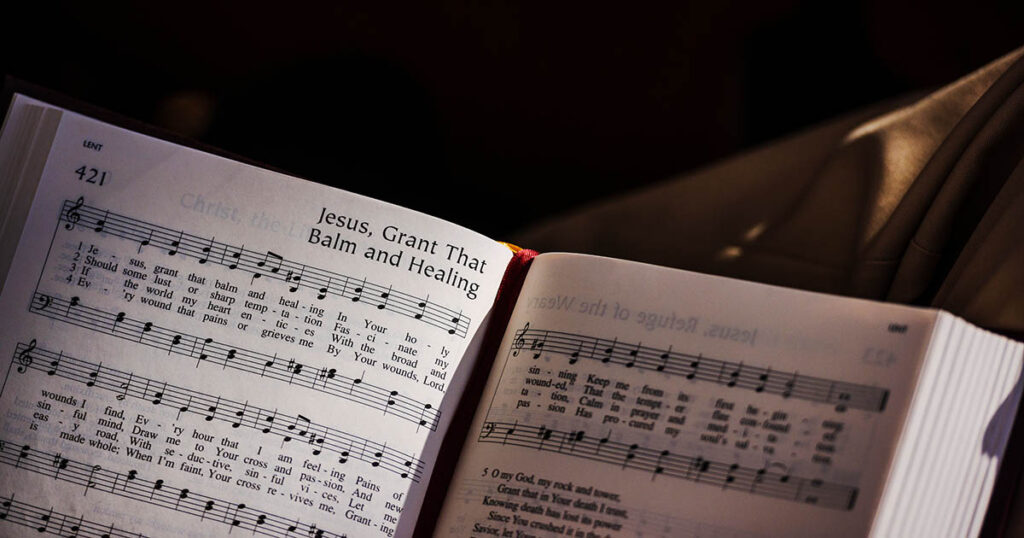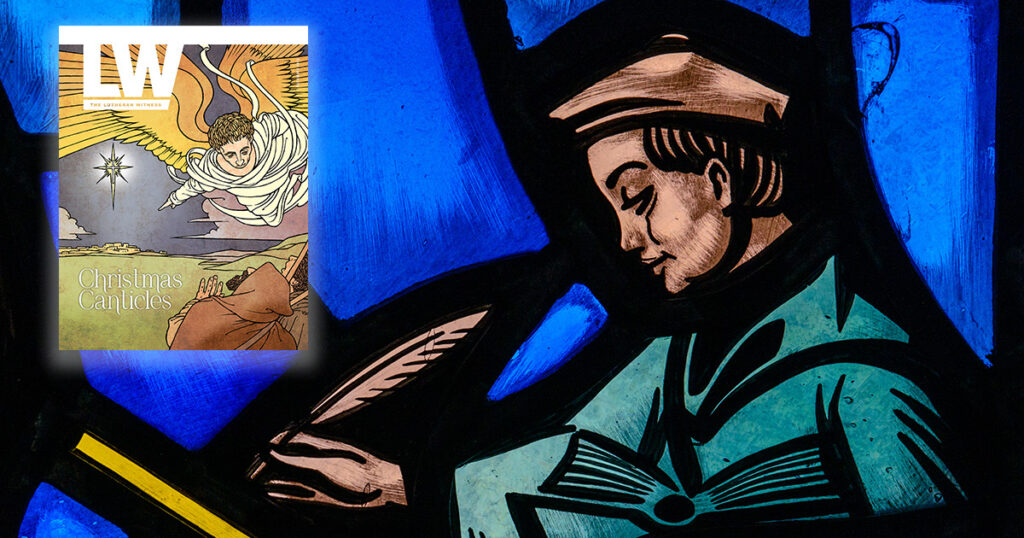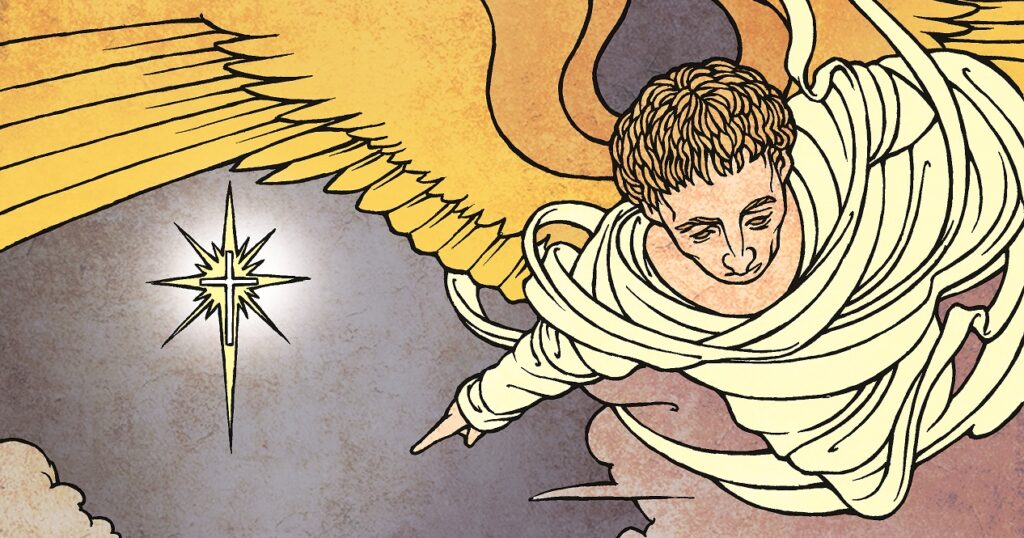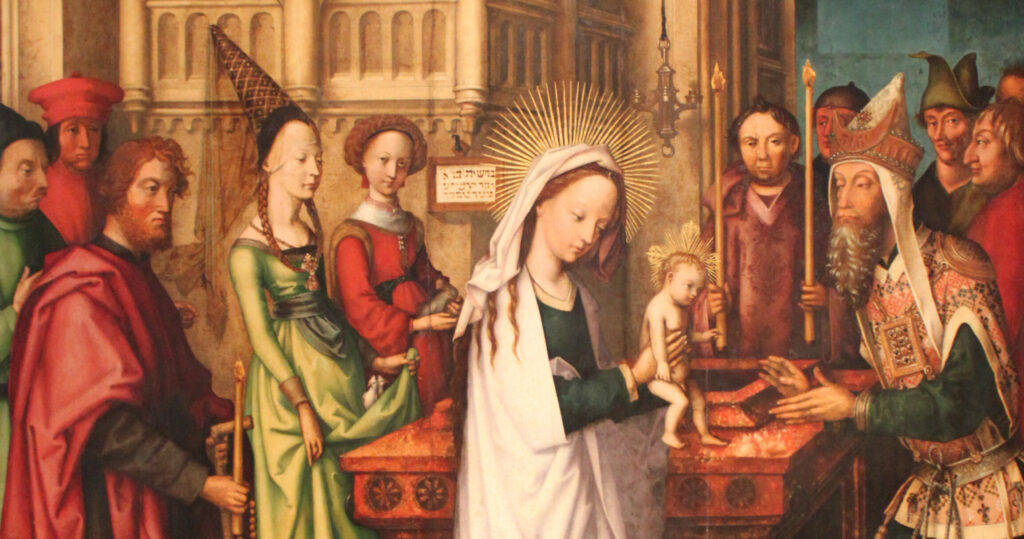A pastor finds a comic strip on the internet and displays it during his sermon. A congregational leader purchases a children’s Christmas program and then reuses it the following year. A church livestreams worship on YouTube, during which the congregation sings “Give Thanks with a Grateful Heart” (Lutheran Service Book 806) without having a license.
These situations may seem harmless, but they are possibly all violations of copyright law. To help LCMS church workers and congregations navigate this confusing and complicated topic, The Lutheran Witness recently talked with Norma Muench, intellectual property assistant and data protection officer at Concordia Publishing House (CPH), who offered the following tips.
Owning a copy of Lutheran Service Book (LSB) does not grant permission for all uses.
“Per the law, a congregation can perform music in their church if they use just the hymnal, but for anything else [including printing in the service folder or recording] they have to have some kind of license or permission from the copyright holder,” Muench says. That’s why CPH offers the liturgy license and the LSB Hymn License, which together cover nearly all of the content found in LSB. The web-based program Lutheran Service Builder, which can be used to plan services and create bulletins, also supports these licenses and automatically inserts the necessary copyright notices.
Pay attention to what the license actually says.
Don’t just assume material may be used a certain way. Instead, check the license; it will explain any restrictions. For example, even with the LSB Hymn License, not every hymn can be printed or recorded. There are two hymns that may not be printed in the United States or Canada, and there are nine hymns that may not be used in streaming — such as “Give Thanks with a Grateful Heart.” This is because CPH is not the sole copyright holder on these hymns, and use of the text or tune is restricted by another owner.
Double-check before using music in a livestream.
During the COVID-19 pandemic, livestreaming became a top concern in the LCMS, including among the CPH staff. To aid congregations in sharing their services online, CPH leadership made the decision to grant permission for any music owned solely by CPH to be used in livestreams. This includes organ, instrumental and choral music — things that church staff might not even realize would otherwise be illegal to use in this way. (To see whether pieces can be used, look for either “Concordia Publishing House” or “public domain” in the copyright notice.)
Include license information when livestreaming.
“We’ve gotten word from some congregations that Facebook or YouTube will shut down livestreams because they’ve used copyrighted materials,” Muench says. Thankfully, there’s an easy way to avoid many of these issues: simply include the copyright information on screen during the livestream. “Then these search engines see that they have a license, and it’s less likely to get flagged or shut down,” Muench continues.
Use dated materials only during their approved timeframe.
Some materials, like vacation Bible school and Christmas programs, may only be used during a certain time period. This is because CPH may have secured permission for the use of certain components from a third party only for a specific quarter or time of the Church Year. “This shows up a lot in Creative Worship because we use organ pieces or piano pieces or even sometimes different choral arrangements that we’ve gotten permission from another company to use for a particular quarter,” Muench says. “They can’t be reused without getting additional permission.”
Don’t make copies.
Unless copyrighted material has a note at the bottom of the page that specifically grants permission to make copies in certain situations — such as for a classroom or a musical ensemble — it is not legal to do so. This also applies to reproducing a quote or an illustration from a CPH product. To request permission from CPH, on a case-by-case basis, email copyrights@cph.org.
Be careful when using materials from other sources.
Church workers and lay leaders sometimes come across an image, a song or another item that they would like to use in the church. “The best policy is that if you find something on the web and you want to use it, look at the terms and conditions for that website,” Muench says. “If it grants you permission [for your particular usage], you can go ahead and use it. If not, you have to contact the administrator of that website and find out where to go to get permission.”
Copyright law may seem burdensome, but doing your best to comply with it will help keep your church safe and ensure the Gospel of Jesus Christ continues to be proclaimed in your community. For more information, visit cph.org/t-copyrights.aspx.
Photo: LCMS Communications/Erik M. Lunsford






Thank you!
Praise the Lord that Bach, Beethoven, Handel and other composers from decades long by didn’t have to abide by copyright laws. If they had we probably would not have some or any of their music and it would have hindered their creativity as they shared freely.